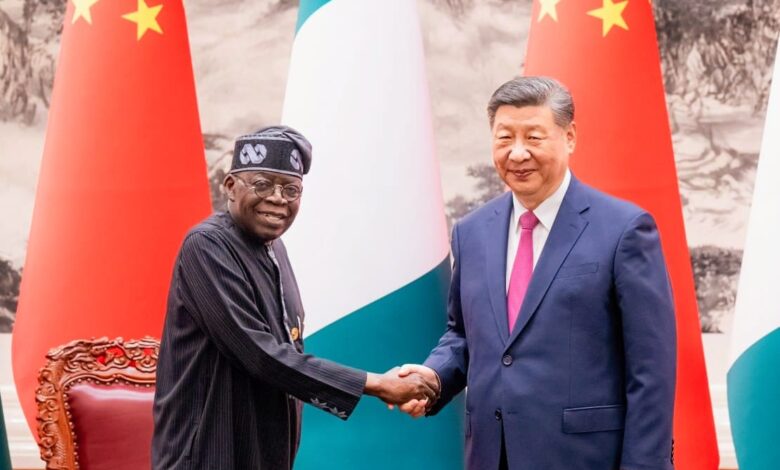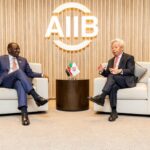Chinese President Xi Jinping and Nigerian President Bola Tinubu have pledged to deepen their economic ties, signing deals on nuclear energy, media exchanges, and Beijing’s signature $1 trillion infrastructure drive.
The two leaders met in Beijing ahead of the opening of the Forum on China-Africa Cooperation, elevating their countries’ relationship to a “comprehensive strategic partnership.”
Xi and Tinubu expressed their commitment to strengthening strategic coordination, driving common progress among Global South countries, and injecting fresh impetus into China-Africa relations.
According to China’s State Council, Tinubu expressed his hope for Nigeria to become China’s largest trade and investment partner in Africa, welcoming Chinese companies to increase investments in various sectors, such as agriculture, manufacturing and mineral energy, and support initiatives to reduce poverty.
- Advertisement -
In a statement released by his office, Tinubu said the collaboration between the two nations would result in “robust development, stability, and security”.
He also highlighted the need for economic reform, ensuring easy access for trading and investment partners.
“We have recognized the need to reform our economy, and we are doing so diligently across tax and tariff reviews, to various other segments of our nation’s economy,” Tinubu said.
During their meeting, Xi and Tinubu witnessed the signing of several Memoranda of Understanding (MoUs) on various areas of mutual interest, including cooperation on the Belt and Road Initiative, peaceful application of nuclear energy, human resource development, media exchange, and infrastructure development.
China has identified Africa as a key region for its signature global infrastructure push, the Belt and Road Initiative, with Chinese companies signing contracts worth over $700 billion on the continent, according to Beijing’s Ministry of Commerce.
- Advertisement -
In Nigeria, the Chinese state-run Export-Import Bank of China is financing 85% of the $5.8 billion Mambilla hydroelectric plant, which will be the country’s biggest power plant upon its scheduled completion in 2030.










